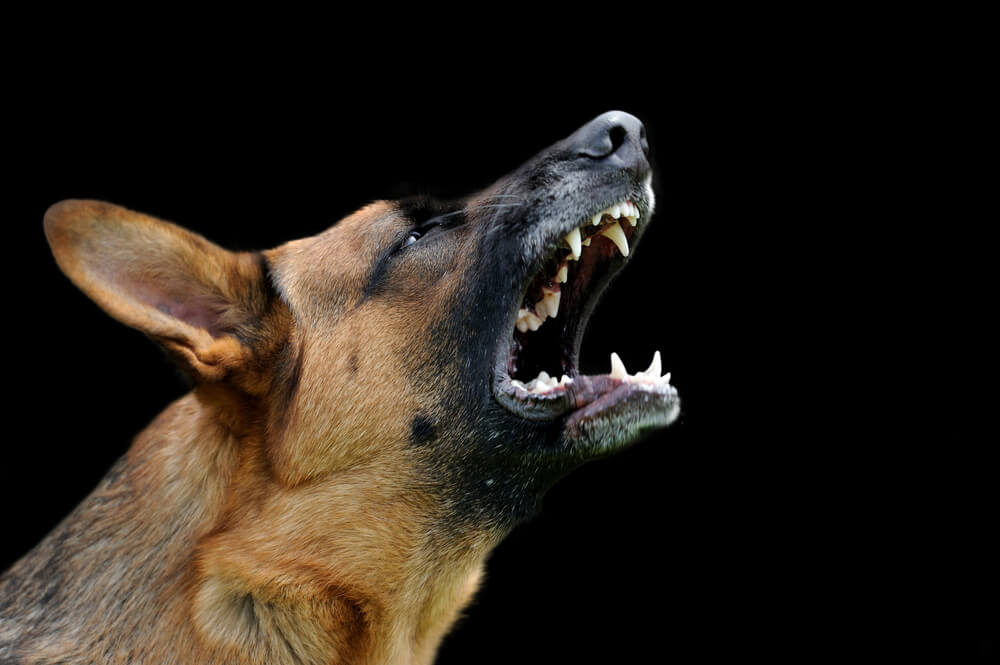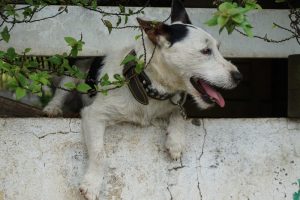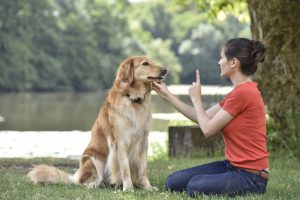Dealing With Aggressive Dogs
 August 10, 2017
August 10, 2017
It’s the term every dog owner hates to hear…aggression. But the most important aspect of this behavioural problem is understanding the issue at hand, and taking ownership. Nadia Crighton investigates aggression in dogs and the reasons why training is so important.
If you are reading this, chances are deep down you are concerned about your dog’s behaviour. Aggression is not something many dog owners like to admit is a problem. But if you are concerned about your dog’s sudden or progressive snarling ways, it’s time to get help.
A dog will become aggressive for many different reasons. As a pet owner, it’s important to understand these ‘triggers’ and get help. Aggression will not go away on its own, and not getting help quickly can ingrain the behaviour and make it difficult to alter. It’s imperative you seek advice from a professional dog trainer who can assess and help with your dog’s condition.
Expert dog trainer, Luana Osmani from Pets Training & Boarding has seen her fair share of aggressive dogs. “With aggression, it is very important to seek professional advice so you can determine a plan of action in terms of treatment. Aggression can be triggered by a variety of things but it is paramount to seek treatment as soon as you notice the behaviour in your dog.”
Aggressive Dog Symptoms:
- Growling
- Snarling
- Moon eyes
- Stiff rigid body
- Showing teeth
Being a responsible dog owner, you need to understand why your dog has become aggressive and how to handle it. This means reducing your dog’s triggers and being prepared. It is also imperative that you have your dog under control at all times. Until you can be 100% confident that the behaviour has been reduced. Read more about learning to understand your dog’s behaviour.
Common Triggers For Aggression In Dogs:
- Other dogs
- Strange people/children
- Fearful situations like a vet visit
- Injury
- Food
“Inter-dog aggression is not uncommon, and it’s about understanding situations that your dog is comfortable in,” Luana says. “If your dog has had a bad experience at an off-leash park, or from another dog at some stage in their life, it could trigger the flight or fight mode. In other words, that one negative experience could have your dog acting aggressively towards other dogs or acting scared of other dogs.”
Enhancing your leadership skills is crucial when addressing dog aggression. Your dog must see you as a capable leader who can manage any situation. This perception of strength and confidence can significantly lessen your dog’s fear response. More information on training your dog to listen.
“The key to treating an aggressive dog is to be honest with yourself and recognise that there is a problem,” Luana says. “A behavioural modification program can include desensitising your dog to the triggers that are causing the aggressive outburst. This can include training your dog with positive reinforcement and also ensuring your dog feels 100% confident in your abilities as a leader.”
Importance of Socialisation
Socializing young puppies is key to preventing aggression. By exposing them to various situations, you build their confidence in the world. Ensuring that your pet has positive interactions with people and other animals is also crucial. Understanding the root of aggression, often fear, allows you to create an effective plan to address and resolve it. A clear understanding of the causes behind aggressive behavior is essential for effective resolution.




